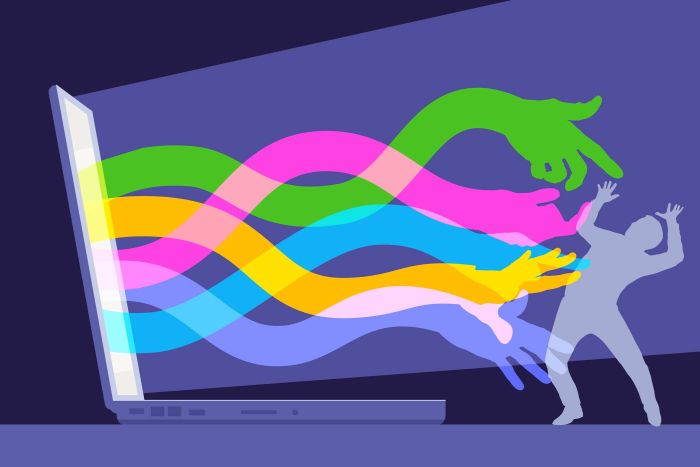First, it was the Ticketfly hack in May. My email was among the 27 million accounts stolen from the events company.
According to the website Have i been pwned?, which monitors data breaches, my personal email has also been found in records stolen from sites like Tumblr and LinkedIn.
By the time the Ticketmaster and PageUp data breach notification emails landed in my inbox weeks later, my attitude had devolved from concern to extreme digital nihilism.
Am I suffering from data-breach fatigue?
Peter Singer, a strategist and senior fellow at New America who writes about cybersecurity, is worried that after all the hacks, data dumps and servers left unprotected, we may be tuning out.
Data breach fatigue
Troy Hunt, who runs Have i been pwned?, has seen the rate and size of data breaches grow since he founded the site in late 2013.
Rather than becoming fatigued, he suggested people simply accept such incidents are now “a normal part of online life”.
“I’m actually finding … that people are judging companies less on the fact they’ve had [a data breach], and more on how they’ve dealt with it,” Mr. Hunt said.
We don’t yet know much about “data breach fatigue” as a measurable phenomenon, agreed Cassandra Cross, an online fraud researcher at the Queensland University of Technology.
“I don’t really think we know … whether people are making choices to do things differently, [or] whether they’re just ignoring it,” she said, suggesting more work needs to be done.
Rui Chen, an information systems academic at Iowa State University, investigated consumer attitudes after online security incidents.
In 2015, the US Office of Personnel Management (OPM) lost more than 4.2 million personnel files, among other sensitive documents.
Dr. Chen and his team used sentiment-analysis tools to track the emotional content of 18,764 tweets containing the hashtag #OPMHack.
After events associated with the hack — from the initial breach announcement to the OPM director’s resignation — they saw a large drop-off in reaction.
In other words, Dr. Chen said, “we can see that the public is gradually losing interest in reacting to this news”.
The effects of ‘fatigue’
If people don’t take breaches seriously, they may not follow instructions to protect themselves, such as changing passwords or using credit-monitoring services.
But our understanding of how people do respond is limited.
“One thing could be there are just so many incidents of data breach happening … people consider it typical,” Dr. Chen speculated.
“It’s the norm of this digital world.”
These incidents can also feel quite abstract, Dr. Cross added.
Consider the compromising of more than 359 million MySpace accounts or more than 164 million LinkedIn accounts — these are almost unimaginable numbers.
For victims, there’s also a difference of perception between your details being lost or stolen and actual misuse of that information — in the form of identity theft, for example, which is estimated to cost Australia $2.2 billion each year.
“They’re just one small individual within an entire group, and they don’t feel that they are particularly valuable in terms of a target,” she said.
Real-world effects
New America’s Peter Singer suggested we won’t see decisive action from the government on these issues until breaches begin to have a dramatic impact in the physical world.
Connected devices, from fridges that can be accessed online to driverless cars, will make this more dangerous — and likely.
You might start caring more when a hacker uses stolen credentials to turn your lights on and off remotely.
“I think … what will inevitably happen is some type of bad outcome,” Mr. Singer added.
A badly handled data breach can also dent a company’s reputation.
Take Uber, which initially tried to cover up the exfiltration of the names, email addresses and mobile phone numbers of 57 million users.
Mr. Hunt also sees companies being judged harshly if a breach exposes their poor security posture, such as storing passwords in plain text without cryptographic protection.
On the flip side, he cited the Red Cross Blood Service’s reaction as “the gold standard” after it lost donor information in 2016.
The group was swift to act and tell the public — and was apologetic throughout.
As data breaches continue, Mr. Hunt hopes people will avoid fatigue and take control: get a password manager, make all passwords unique and turn on two-factor authentication.
“These are really basic things that we can all do, and they fundamentally change the impact of a data breach,” he said.
Source: ABC
Author: Ariel Bogle

